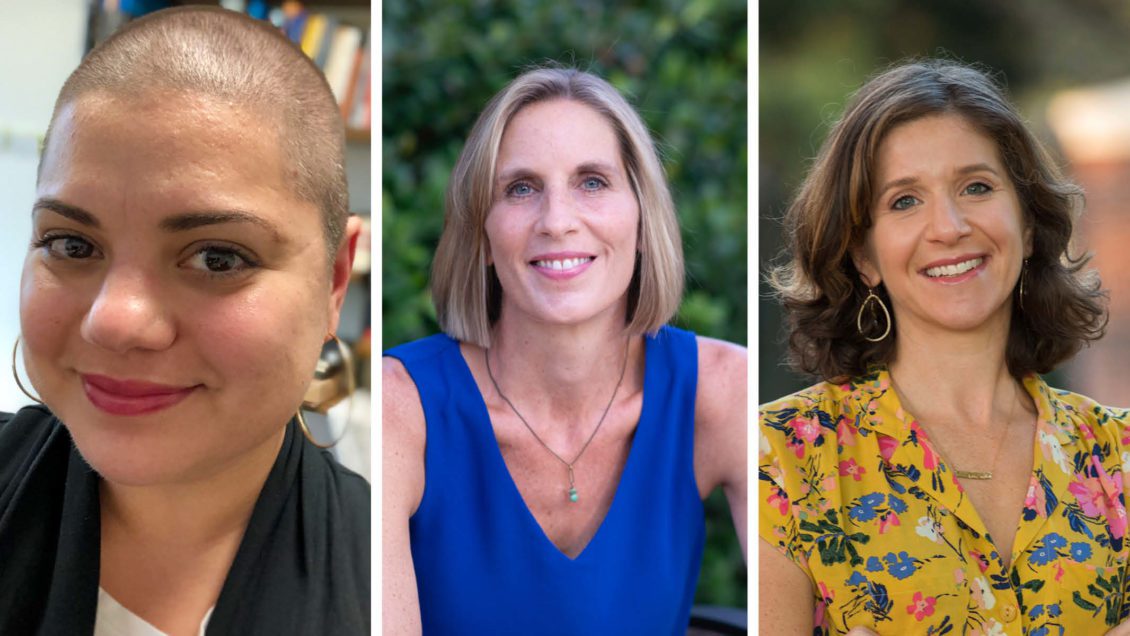
A group of researchers from the Clemson University College of Education will use a more-than-$950,000 award from the National Science Foundation (NSF) to partner with rural schools in South Carolina to make computer science fun and accessible to middle school students and those with learning disabilities and emotional/behavioral disorders.
According to Danielle Herro, associate professor in the College and principal investigator on the project, the research aims to help these students hone computer science skills that will likely be useful in many facets of their everyday lives. Herro said that can be achieved through a strong partnership with teachers.
“Data science knowledge certainly helps a person understand computer algorithms, but it can also help them make good decisions about banking, better understand how to protect the environment or understand statistics about how a virus can spread,” Herro said. “We’ll work directly with teachers who know their students’ and their communities’ interests and needs, which will create meaningful experiences for them, but we will also do all we can to make learning fun.”
Herro said effective curricula specifically for computer science exists in school districts around South Carolina. However, she said moving data science into mainstream education, particularly in rural elementary schools with large special education populations, is not common. The project seeks to address that need by allowing teachers in rural areas to highlight the issues, strengths and interests of their community in the curriculum, thus avoiding the pitfalls of applying a one-size-fits-all approach. Within the curriculum, students may convey their learning through videos, text, images, drawing, participating in simulations, visualizing ideas or playing with tools.

With these priorities in mind, the researchers plan to introduce what it calls a Computational Thinking-STEM Pop-Up, or CT-STEM Pop-Up. In education, a pop-up is made up of customizable courses or units that are implemented based on student need. Herro said this particular pop-up will offer opportunities for students to engage in new, hands-on material not covered in the traditional curriculum, and all material will be delivered through the lens of science, technology, engineering and math (STEM).
Golnaz Arastoopour Irgens, assistant professor of learning sciences and co-principal investigator on the project, said much of what the pop-up looks like will be determined by work done in partnership with the schools, as the skills embedded and even the learning environment can be customized to meet student needs.
“The goal is to start with the kids and the community and design something that meets their needs,” Arastoopour Irgens said. “Teachers, parents and community members know their students’ strengths and needs best, and they know what is possible. While we have an idea and solid direction of what we hope to do, we will work closely with the teachers to co-create and then modify the curriculum as needed when we first implement it.”
Shanna Hirsch, assistant professor of special education and co-principal investigator on the project, has a background focusing on research-based strategies for students with high incidence disabilities such as those with learning disabilities or emotional-behavioral disorders. Thanks to her expertise, the research project will also factor in the needs of this student population.

Hirsch said the researchers are incorporating an instructional framework called Universal Design for Learning. This framework optimizes learning for all students including those with disabilities.
“This framework engages students by changing both the learning environment and providing students with choices about how they prefer to learn,” Hirsch said. “It allows them to express and demonstrate their learning in different ways.”
Matthew Madison, faculty member from the University of Georgia will play a crucial role in quantitative research methods that will allow findings to be generalized to other populations of teachers and students.
The research team has already been busy working with partners to identify community issues, student interests and local resources to help support the learning. The award will run for three years, so the research team is essentially just getting started, but Herro can see the potential for benefits outside of those directly involved in the research project.
Throughout the life of the project, the team plans to share the pop-ups online and at conferences and workshops, making them freely available for others to customize after they implement, test and revise them in classrooms. Herro said the team foresees the development of between 12 and 16 modules that can be shared and customized by the end of the project.
“It’s truly exciting to have the team of researchers that we have devoted to this project because it means we’re being as inclusive with this research as possible while ensuring that our findings won’t just benefit the schools in which we’re working,” Herro said. “We’re hopeful to see their impact felt in rural and urban areas far beyond those in South Carolina.”
END
Get in touch and we will connect you with the author or another expert.
Or email us at news@clemson.edu

